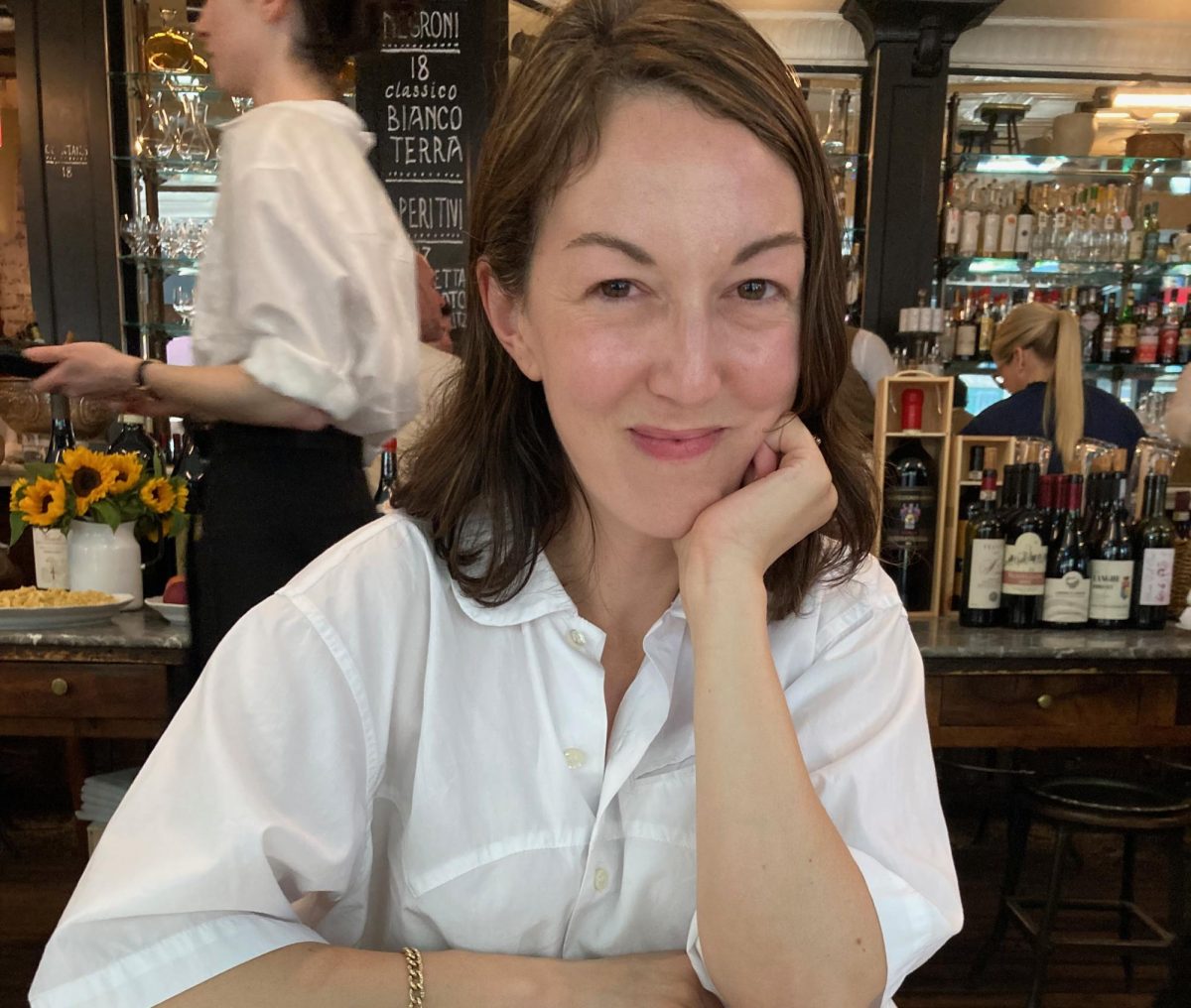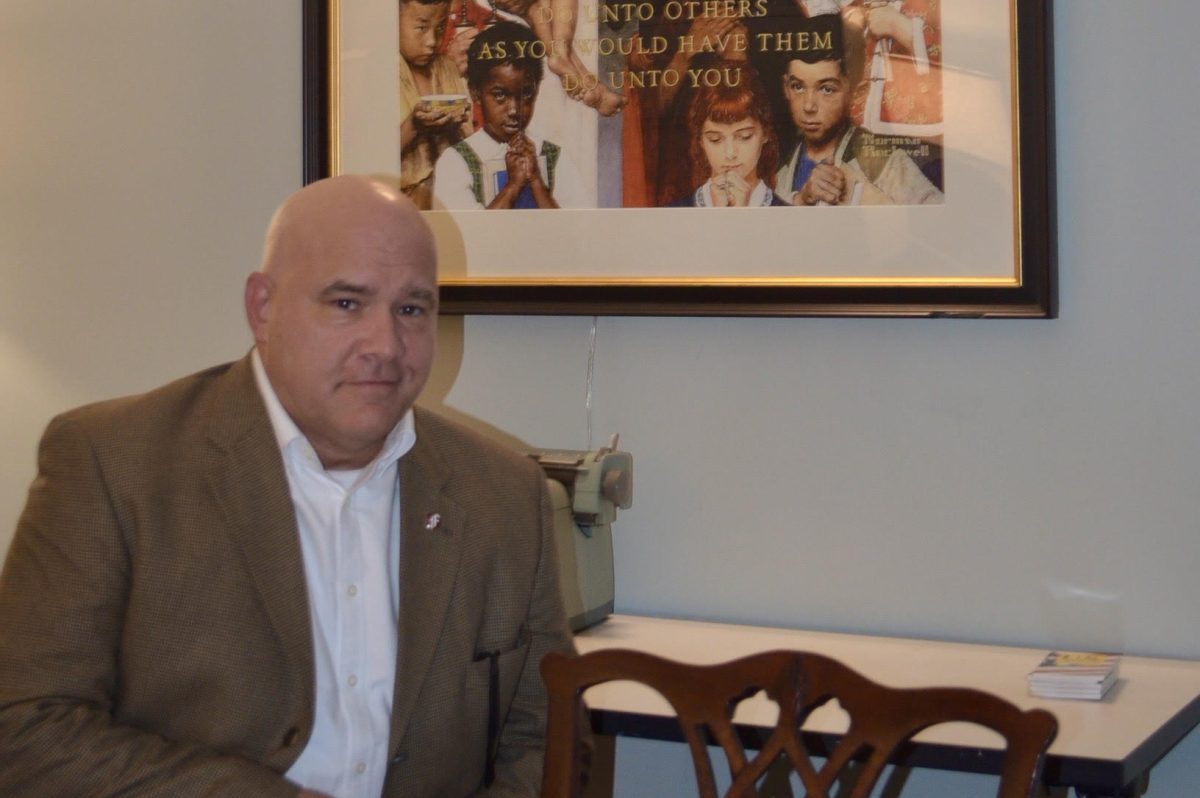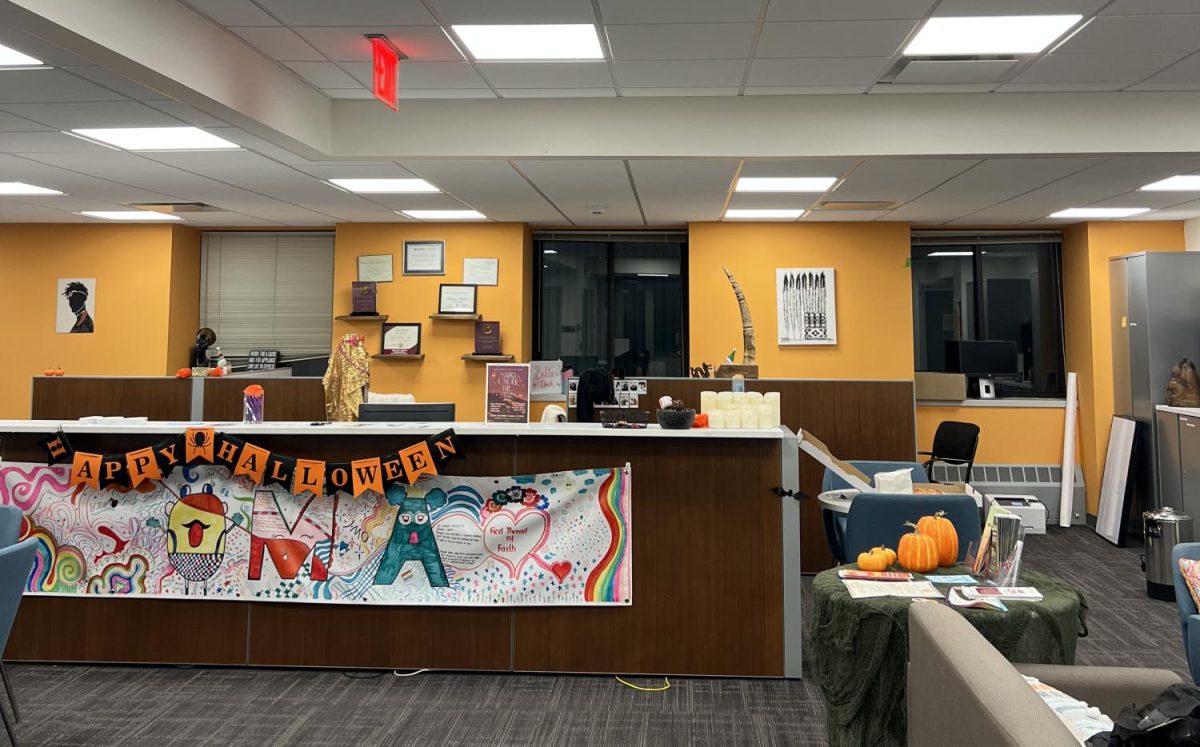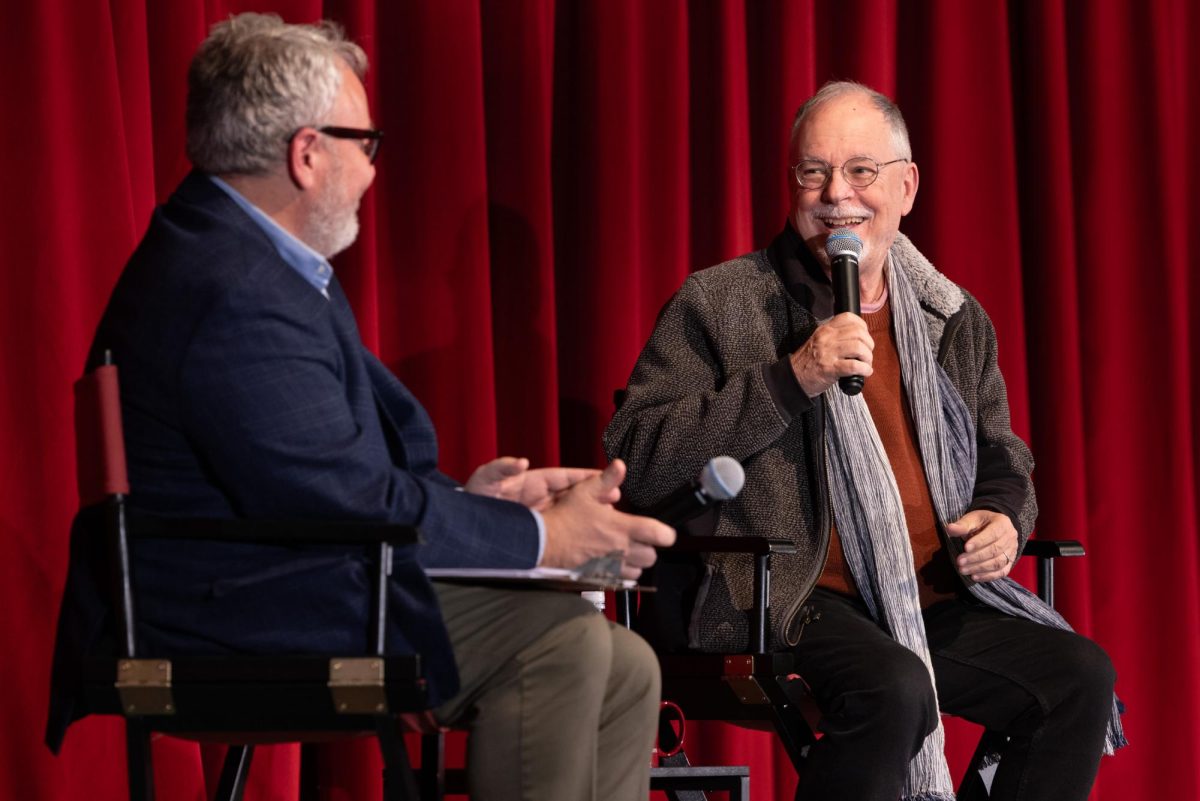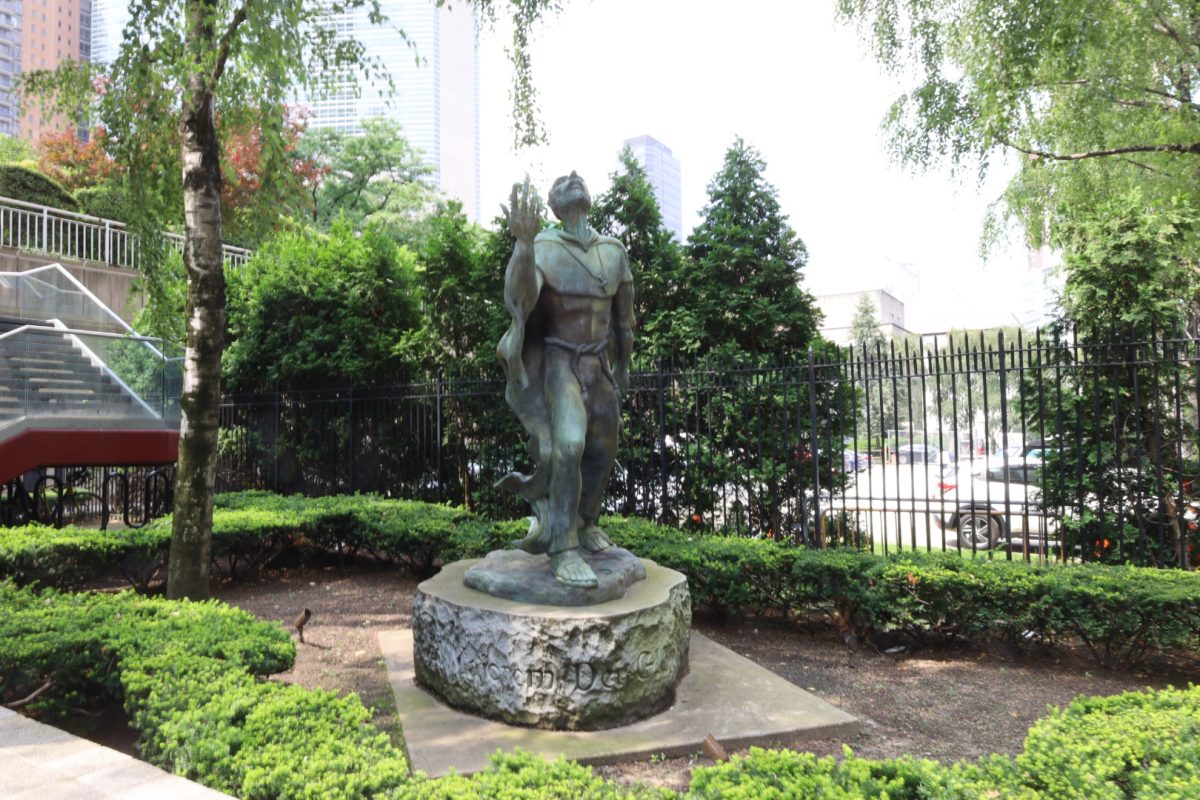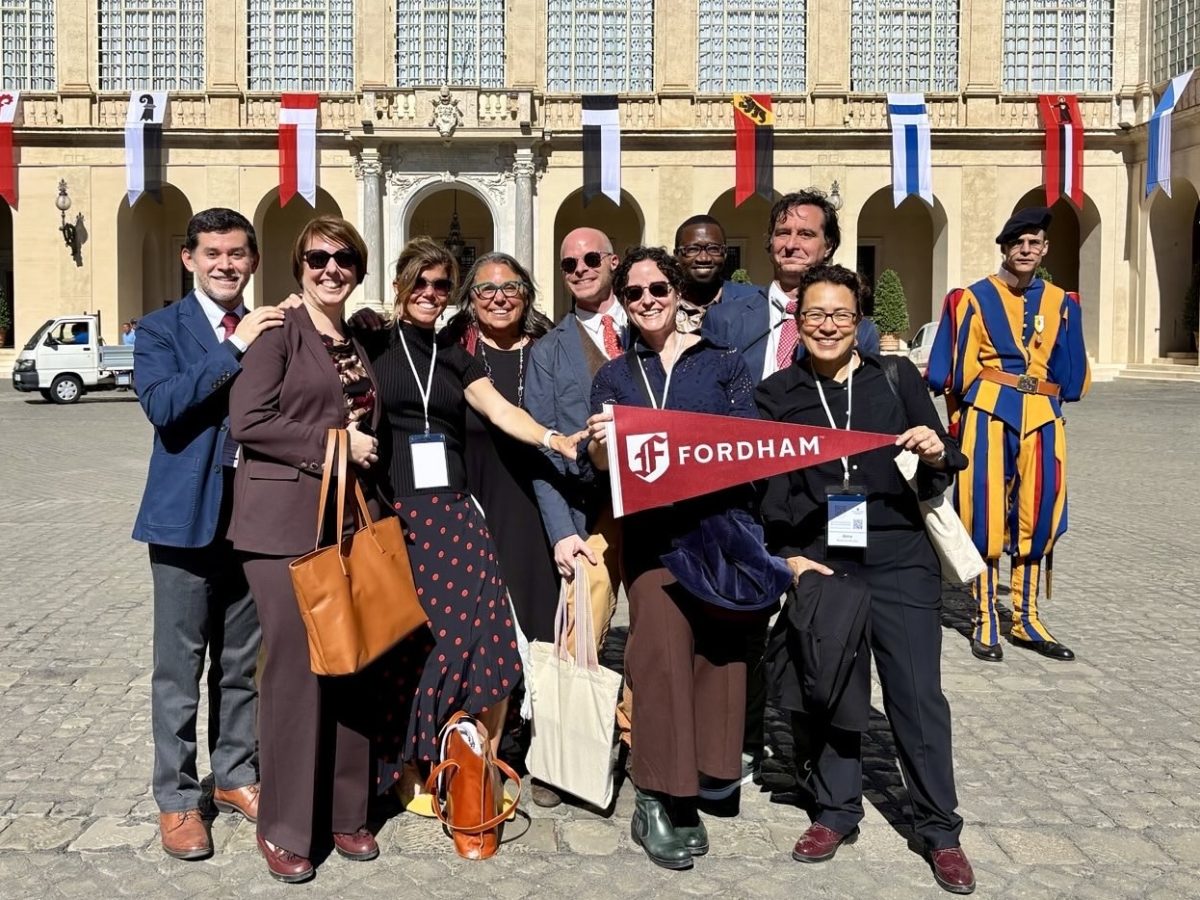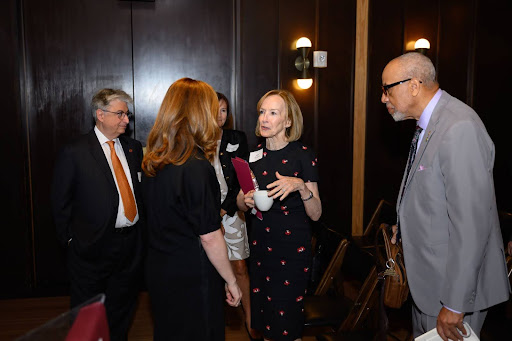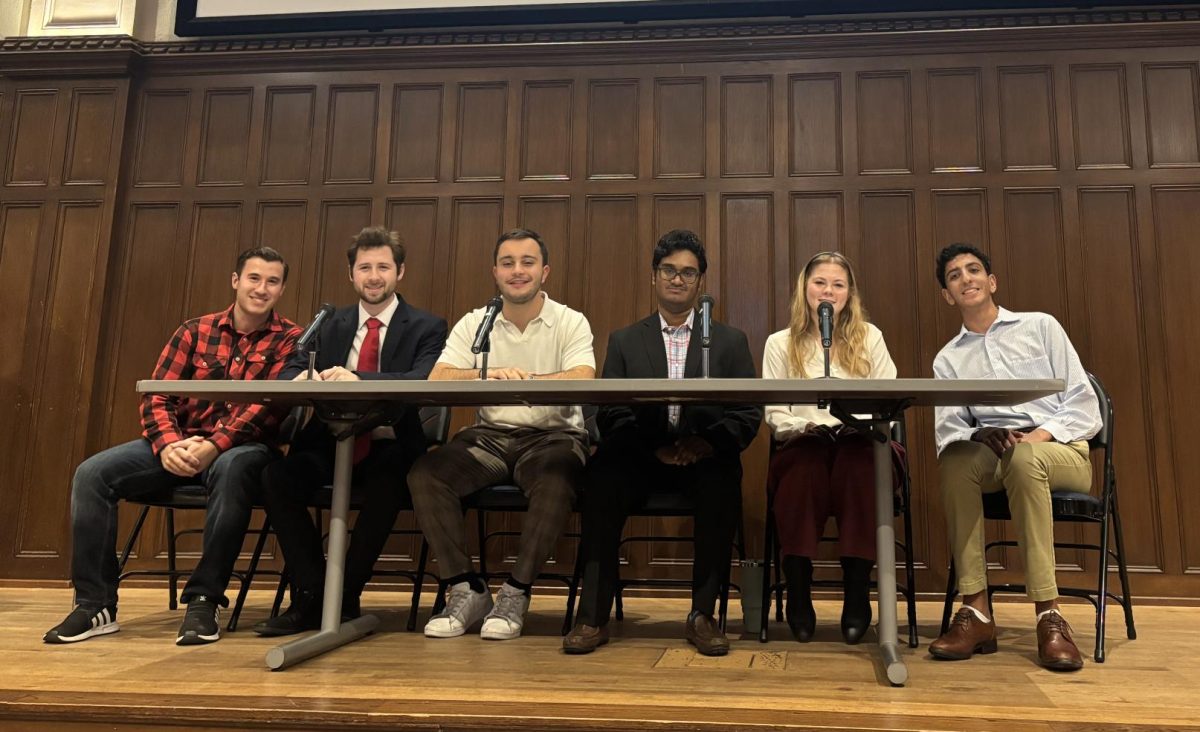Professor Shonni Enelow, one of Fordham University’s leading experts on modern drama, was recently appointed chair of the English department. Her new position was announced on Aug. 28 to the Fordham English community, replacing previous English Chair Mary Bly. Enelow has spent her last 12 years at Fordham working on theory at the intersection of modern drama and textual study, publishing three award-winning books and writing prolific film criticism for publications such as the Criterion and Film Comment.
Enelow first arrived in New York City as an undergraduate, earning her BFA in theater at New York University’s Tisch School of the Arts. After graduation, she went on to complete a Ph.D. in comparative literature and literary theory at the University of Pennsylvania.
What might seem like a staunch career pivot to many came rather naturally to Enelow. Theater and English, she finds, work in tandem when it comes to engaging and situating oneself within artistic work.
“Many of the tools of literary study are intimately related to the kinds of work that one does in getting inside a work of theater,” Enelow explains. “I’m interested in the ways that we think about the multiple modalities, not just with which we approach works of arts and works of literature, but also that these texts encode multiple ways of seeing, multiple ways of experiencing.”
After graduating with her Ph.D. in 2012, Enelow arrived at Fordham as the resident modern drama specialist in the English department — a position that was interdisciplinary from the start. Enelow began her initial scholarship in theater studies, moving from there into newer contexts, including film.
“I was hired to be the modern drama person, and with that comes certain expectations for what you’ll teach and what you’ll publish on and all that. But one thing that I really liked about Fordham and the English department is that it was immediately communicated to me that the department was really open to allowing me to explore different fields, different subjects, different research trajectories, different ways of pursuing my path.”
Three years later, she published her first book, “Method Acting and Its Discontents,” an analysis of the modern acting and theater born of the psychological, social and racial contexts of the 1950s and ’60s. In 2016, it won the George Jean Nathan Award for Dramatic Criticism — one of the most prestigious awards in theater criticism administered by the English departments of Cornell University, Princeton University and Yale University.
After initial publications in theater, Enelow describes her current scholarship as “[straddling] the worlds of theater and film studies.” Since “Method Acting,” Enelow has published “a discourse on method,” co-authored with artist David Levine, and “Joana Hogg,” an analysis of filmmaker Joana Hogg’s feature films.
Prior to becoming chair of Fordham English, Enelow spent three and a half years as the co-director of the comparative literature program — a role she notes prepared her for her current role as English chair. As co-director, she ran committees and worked with faculty leaders and administrations to make important academic and university governing decisions.
Within the English department, Enelow has been involved in increasing interdisciplinary collaboration and diversifying the curriculum, particularly through the push for a race and social justice requirement for the English major.
“We decided to create a requirement in the major for a course on race and social justice,” Enelow said. “It sends the message to prospective majors, to our students, that this is something really important in our curriculum. But also, in terms of the education, our students now have to take at least one course in which 50% or more of the works on the syllabus are by a person of color.”
As a professor, Enelow brings her theater and English training to the forefront of her teaching, creating a collaborative room and emphasizing intellectual risk in questioning preheld truths.
“A lot of my ethos of teaching comes from Bertolt Brecht whose basic idea is sort of summed up in something he wrote once — when something seems like common sense, it means that any attempt to understand the world has been given up,” she said. “So anytime you think that you know something, it’s actually essential to question that and to estrange that.”
For Enelow, this means that she brings herself to the classroom as a thinker and conversationalist in an ecosystem with her students.
“What I try to model for students is my own risks. I always want students to feel like they’re seeing me really think, not just reiterate something that I’ve already thought, but that they’re in a space where somebody is thinking with them, and hopefully that will encourage them to think with each other,” explained Enelow.
“The idea that we’re creating something together in the room that is specific to the people in the room and that can’t be done without each and every person in the room — that requires us to estrange what we think we know to create something new. That’s really essential to me as a teacher and as a thinker. To me, that is really related to the ethos of theater creation.”
Enelow looks forward to future work within the English department, noting the role of faculty in a successful and growing English major and serving the students within the program.
“There’s a lot that I’m looking forward to. It’s a really outstanding department,” Enelow noted. “At Fordham, the English department is thriving. Our major has grown leaps and bounds over the years. I always say this to colleagues at other universities, and they’re shocked, because nationwide, that’s not true. At Fordham, it’s [the major] been doing amazingly. That is a testament to our incredibly dedicated faculty who care so much about our students and care so much about the education that we’re giving to our students.”



































































































































































































